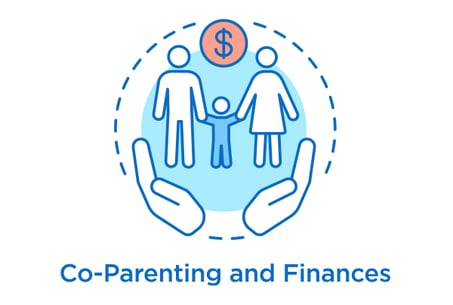Be Aware: 10 Economic and Financial Forces that Affect Co-Parenting
2 min read
Date Published: 12/17/2019
Last Updated: 10/15/2021
National Fatherhood Initiative Blog / Latest Articles
2 min read

Before you read on, grab a pen and write down as many economic and financial forces as you can that affect the ability to co-parent effectively.
How many did you identify?
If you’re like me, it would have been easier to identify the non-economic and financial forces that affect co-parenting.
That’s because when it comes to working with dads and moms, we focus on the dynamics between parents rather than the broader forces that act upon parents—forces to which we and they are oblivious.
That’s why I was glad to learn about an excellent brief from the Association of Family and Conciliation Courts entitled, “Ask the Experts: Ten Economic and Financial Forces Affecting Co-Parenting.” To my point above, the authors of the brief start it this way:
“As professionals interacting with families, we understand the obligation to address emotions, needs, and interests with parents who are struggling with co-parenting decisions. It is a relatively new idea to consider how money and financial factors affect conflict between co-parents. Frequently, both the professionals and the parents are unprepared to approach problem-solving from this prospective. Professionals may overlook financial factors in attempting to help parents confront their disagreements. There are some basic points related to money that practitioners should keep in mind when trying to help co-parents resolve conflict and disagreements.”
Here are the 10 forces, taken verbatim from the brief. To learn more about each one, read the brief.
I encourage you to share the brief with your colleagues who work with parents. I also encourage you to raise your awareness of the co-parenting resources of National Fatherhood Initiative® (NFI), such as our Co-Parenting Bundle, that can help you help dads and moms to co-parent effectively.
How much did you know about the economic and financial forces that affect co-parenting?
How much do you know about the co-parenting resources of NFI?
Date Published: 12/17/2019
Last Updated: 10/15/2021
Download this free guide for a proven 7-step roadmap—from making the case and securing funding for your program, to launching and measuring real results!


Train Your Staff
Fatherhood Programs
Fatherhood Data
© 2026 National Fatherhood Initiative®. All rights reserved.